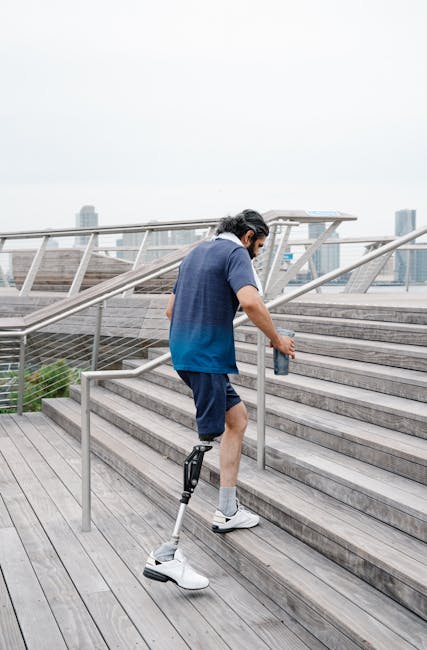Health Benefits of Walking: Steps to a Healthier You 🚶♂️
Walking is one of the simplest yet most effective ways to improve your health. Whether you’re taking a leisurely stroll or a brisk walk, each step you take can lead to a healthier you. Join me as we explore the incredible benefits of walking and how you can incorporate it into your daily routine!
Table of Contents
1. Physical Benefits of Walking
2. Mental Health Boost
3. Tips for Effective Walking
4. Conclusion
5. FAQs
Physical Benefits of Walking 🏃♀️
Walking is an excellent cardiovascular exercise that helps improve your overall physical health. Here are some of the top physical benefits:
1. Enhances Cardiovascular Health: Regular walking strengthens the heart, reducing the risk of heart disease and stroke. It’s a fantastic way to maintain a healthy blood pressure and improve circulation.
2. Aids in Weight Management: Walking helps burn calories, making it easier to maintain or lose weight. Plus, it’s low impact, which means less strain on your joints compared to other exercises.
3. Strengthens Muscles and Bones: Walking tones your legs and strengthens bones. It’s particularly beneficial in preventing osteoporosis and enhancing core stability.
Mental Health Boost 😊
Walking isn’t just good for your body; it’s equally beneficial for your mind:
1. Reduces Stress and Anxiety: Walking releases endorphins, the body’s natural mood elevators. A short walk can significantly reduce stress levels and improve your mood.
2. Boosts Creativity: Studies suggest that walking can enhance creative thinking. The rhythm of walking and the fresh air can stimulate new ideas and perspectives.
3. Improves Sleep Quality: Regular walking can help regulate your sleep patterns, making it easier to fall asleep and stay asleep throughout the night.
Tips for Effective Walking 🚶♀️
To maximize the benefits of walking, consider these tips:
1. Set a Routine: Try to walk at the same time every day to build a habit. Morning or evening walks can fit seamlessly into your schedule.
2. Choose the Right Footwear: Comfortable shoes with good arch support are essential to prevent injuries and ensure a pleasant walking experience.
3. Vary Your Route: Keep your walks interesting by exploring new routes. This can prevent boredom and keep you motivated.
4. Track Your Progress: Use a pedometer or a fitness app to track your steps and set goals. Watching your progress can be incredibly motivating!
Conclusion 🌟
Walking is a simple, cost-effective way to enhance both your physical and mental health. Whether you’re aiming to improve your heart health, boost your mood, or simply enjoy nature, walking offers a myriad of benefits. So, lace up your shoes and start walking towards a healthier you today!
FAQs 🤔
1. How much should I walk daily to see health benefits?
Most experts recommend aiming for 30 minutes of brisk walking most days of the week. However, even shorter walks can contribute to improved health.
2. Is walking better than running?
Both walking and running have their benefits. Walking is less stressful on the joints and is more sustainable long-term, especially for beginners or those with joint issues.
3. Can I lose weight just by walking?
Yes, walking can aid in weight loss, especially when combined with a balanced diet. Consistency is key!
4. What’s the best time of day to walk?
The best time is when it fits into your schedule and when you feel most energized. Some prefer morning walks, while others enjoy evening strolls.
5. Do I need any equipment for walking?
All you need is a good pair of walking shoes. Optionally, you can use a pedometer or fitness tracker to monitor your steps.



